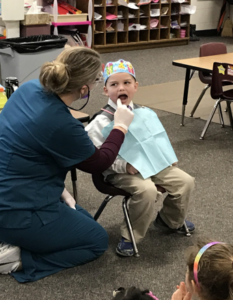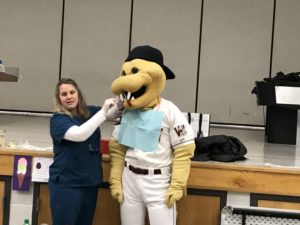Anatomy of a Smile Makeover
February 23rd, 2018

A smile makeover is usually a combination of one or more cosmetic dental procedures. To achieve your desired result, Dr. Dale Scharine and Dr. Alissa Edwards may perform or suggest a variety of options. The entire process is designed specifically for your unique cosmetic needs, and Dr. Dale Scharine and Dr. Alissa Edwards will make sure all your concerns regarding your smile are addressed.
Here are some of the most common procedures in cosmetic dentistry and how they work:
- Tooth whitening – Whiter teeth are achieved through a bleaching process typically using hydrogen peroxide or carbamide peroxide. Yellower teeth usually respond well to this procedure, while brown-colored teeth stained by fluorosis or taking tetracycline do not respond as well to whitening. Tooth whitening is not for everyone; if you have sensitive teeth, gum disease, or poor enamel, Dr. Dale Scharine and Dr. Alissa Edwards may recommend against tooth-whitening services.
- Orthodontics – Braces are one of the tried-and-true ways of achieving a healthier smile. Braces are typically worn between 12 and 24 months to reposition the teeth in a straighter and safer alignment. Since your bite is also corrected during this process, it helps ensure you won't have any trouble down the line. There are several different types of braces available these days including: traditional metal braces, clear ceramic braces, lingual braces, and clear aligners.
- Veneers – Veneers are thin, tooth-colored material (porcelain or resin) designed to be placed on the front surface of teeth to improve their overall appearance. They can be used in cases where the color, shape, size, or length is not as desired. Veneers are usually used in cases where teeth are discolored, chipped, worn down, misaligned, irregular, or have gaps.
- Implants/bridges – Dental implants and bridges are used to replace missing or broken teeth. Nowadays, both implants and bridges are commonly performed procedures. Implants integrate directly with the jawbone, while bridges are placed over the adjacent teeth to the missing tooth. Implant technology has advanced a great deal in recent years and highly biocompatible ceramic materials are becoming more commonplace.
Getting your perfect smile will take time and patience, but the end result will be well worth it! Please schedule an appointment at our Appleton, WI office about the cosmetic dental services we offer, and achieve the smile you've always wanted!







 Website Powered by Sesame 24-7™
Website Powered by Sesame 24-7™